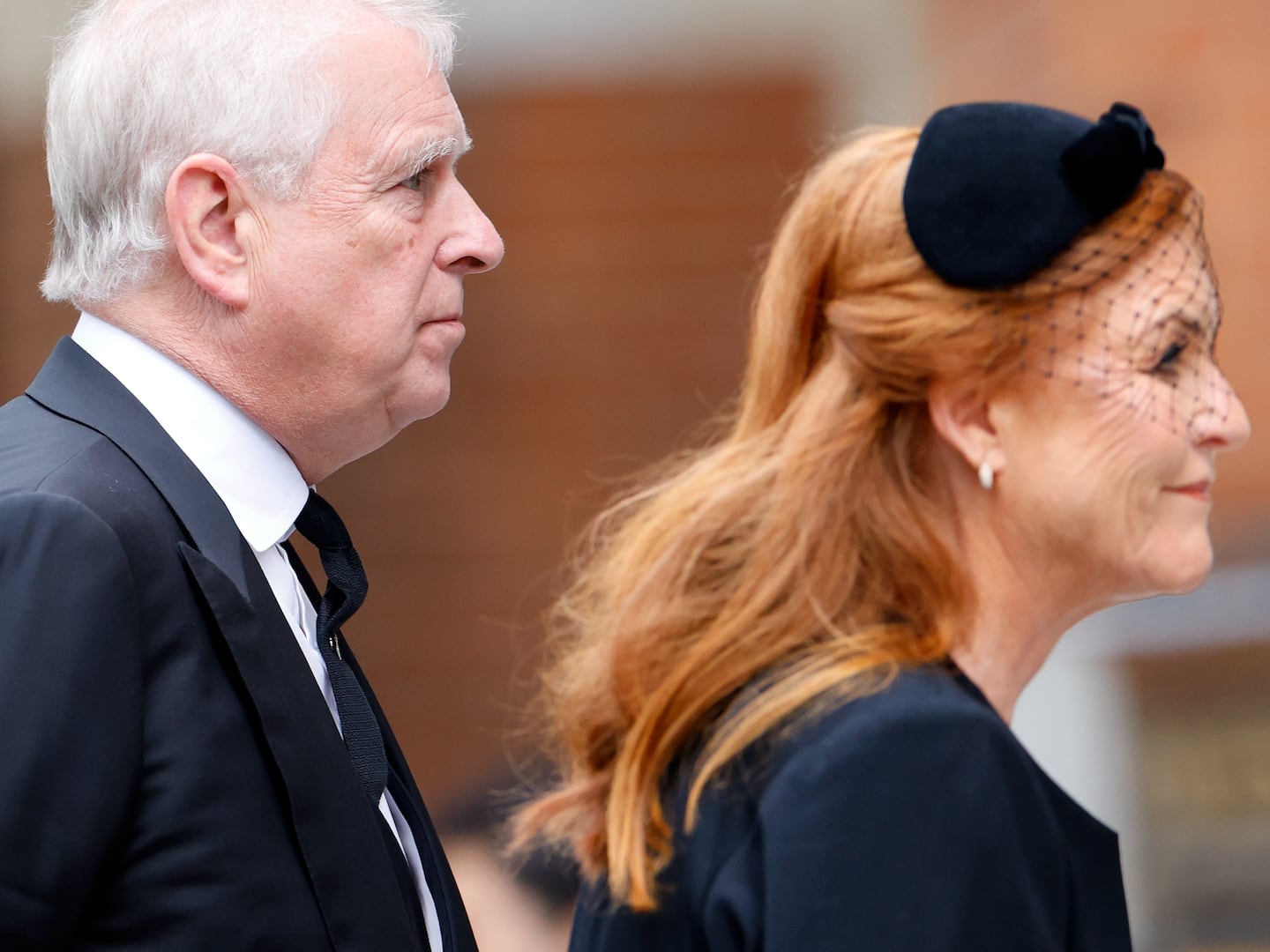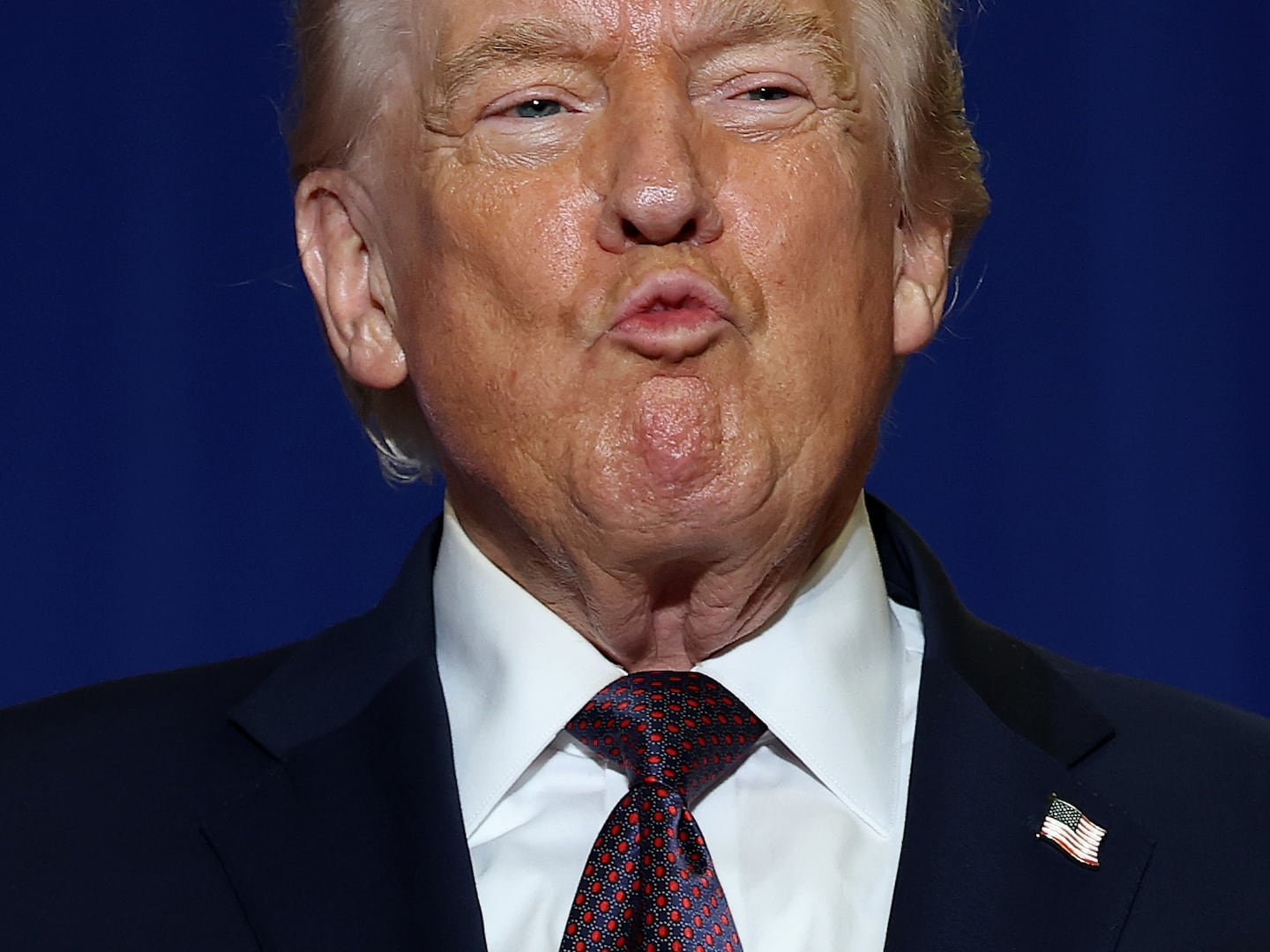At publications large and small all around the country, TV and media writers have been putting off their obligatory “Farewell, Dave” pieces in the hopes that maybe by doing so, they might somehow help delay David Letterman’s dreaded exit from the American scene—his retirement from late-night television after 33 hilarious and largely unpredictable years.
It is an occasion for utmost sadness and in some ultra-Lettermanly homes, utmost panic. As a media milestone, it easily ranks with the departures of comparable icons Walter Cronkite and Dave’s mentor, Johnny Carson. And as a historical tragedy, well, the sinking of the Titanic comes to mind.
You know him, you love him, you can’t live without him—as rascally Dave used to say facetiously, and repeatedly, in his early years on the air, and sometimes even now. But millions of viewers who love him and feel they do know him are also wondering if they really can live without him. That’s five hours each week that now loom empty, especially for those who feel generationally unwelcome at the competitors’ shows.
Letterman’s departure really represents the end of the talk-show era; what the networks have in those time-slots now are really comedy-variety shows. (Johnny Carson’s thoughtful, largely joke-free interview with neo-Nazi novelist Ayn Rand, making the Internet rounds yet again, is a reminder of what talk shows started out being, and can never be again).
Ends of eras are proclaimed once a month, if not every day, but this really is one, because more than Letterman’s CBS Late Show is going out of business. Comedy, entertainment and national values are tectonically changing. Criminally unfair though it is, Dave must go.
The talk has been drained out of talk shows, so the genre really needs a name change; it’s already having a game change. The noise level—largely a white noise level—has shot way up. Letterman may have specialized in humor that was goofy, absurdist, deranged, but there was an underpinning of irreverent intelligence to it; a sly sardonic attitude that lampooned the world, the culture, its totems and tenets. In its way it was literate, which much of today’s comedy is not, and does not want to be.
When one thinks of Dave—messy-maned, gap-toothed, quirky-jerky Dave—one might also think of a famous rhetorical question from the John Ford film The Last Hurrah: “How do you thank somebody for a million laughs?” A few weeks ago, I clicked over to TCM during one of Dave’s yawningly long commercial breaks and saw a quotation from Rafael Sabatini’s Scaramouche used at the beginning of the MGM version of the novel: “He was born with a gift of laughter, and a sense that the world was mad.” That’s our Dave.
Letterman and his writers have been turning the mad, mad world inside out for three decades now, managing to make even crying shames cause for laughter. Dave surely has miles to go before he sleeps, but the format itself is looking increasingly anachronistic. Look at Dave’s monologue, previously a zinger-filled, Carsonesque collection of topical quips and jokes, and now a messy assortment of blips and bloops and video oddities gone viral, with Dave serving as a mere interlocutor (the head minstrel in the old minstrel shows).
The illustrated and interrupted monologue is actually one thing Jimmy Fallon’s people over on NBC do better. Late Show’s presentation of clips is sloppy, and the intro’s and outro’s are sometimes longer than the clips themselves.
Tonight on CBS, the network that was never seriously in the late-night business until Letterman left NBC to come over in 1993 (Dave having, famously, been passed over as heir to Johnny Carson’s Tonight Show in favor of Jay Leno), 90 minutes of prime time will be devoted to this unlikely hero—one who was lured to CBS by a knight in shining cashmere, Sir Howard Stringer, then chairman of CBS and later of Sony.
An affectionately autographed photo of Letterman hangs in the first-floor hallway of Stringer’s plush East Side townhouse.
Curiously, tonight’s retrospective was produced not by Letterman’s own Worldwide Pants (Letterman did prime-time clip shows on NBC for a few years, but stopped because he found them to be too much work), but by CBS News. At least it’ll probably be accurate, if not exactly wacky.
Worries and well-wishes about Letterman and his departure have saturated social media for weeks, including Facebook fan sites and such affectionate Twitter accounts as @ByeLetterman, started last October by entrepreneur Jeff Zuk and now 7,300 members strong; and a joint effort, @ByeLettermanLT, offering live Tweeting of Late Show and Late Night (the NBC show) episodes and clips for free.
Yes, here’s Dave almost getting kicked in the head by Crispin Glover, dashing offstage to safety. Here’s Dave feigning shock as Andy Kaufman taunts wrestler Jerry Lawler into violence. Here’s Dave smiling appreciatively as Drew Barrymore, back to camera, jumps onto his desk and flashes her breasts. Here’s Dave almost bringing Paris Hilton to tears by tactlessly asking what her life’s like now that she’s “out of the slammer.”
YouTube, too, is awash in Dave, and the emotional range represented by the clips reflects the wild ride Letterman has conducted over his three decades-plus on network TV. Because in addition to being splatted against a wall in a Velcro suit on Late Night, and taking Oprah Winfrey on a walk down Broadway to the premiere of The Color Purple—thus ending their mock “feud”—on Late Show, here’s a different Dave, looking grimly into a CBS camera on Sept. 17, 2001, and trying to make sense of the traumatizing events of 9/11, speaking more eloquently than almost anyone else in television did in the tragedy’s aftermath.
Noting that analysts had said the attack was “fueled by religious fervor,” Letterman asked rhetorically, dejectedly, uncomprehendingly, “If you live to be 1,000 years old, will that make any sense to you? Will that make any goddamned sense?” Yes, for this occasion, stuffy CBS censors did not bleep “God.” Going back as far as the Jack Paar days and nights of the late ‘50s and early ‘60s, Americans have wanted more of their talk show hosts than gags and sketches. The viewing nation was caught up for months if not years in the quandary, “What is Jack Paar really like?” (He made news, too, in 1959 when he renewed with NBC for a dizzying $100,000 per year!).
You can’t spend that much time with somebody—probably in your bedroom—and not feel like you want to know him better.
And just when we would think we knew David, some head-spinner, or at least head-scratcher, would come along, like the night in 2009 when he sat at his little desk confessing to a long-running affair with a female staff member and revealing attempted blackmail over that by a CBS News producer, later apprehended. “Yes, I have sex,” Letterman confided parenthetically; we pretty much had thought of male talk show hosts (and male is what all the late-night ones were) as near-eunuchs who made ribald remarks but lacked the genitalia necessary for orgasms.
Dave apparently wants to remain, to some degree, a man of mystery. Although his mother, Dorothy, made occasional holiday appearances on the show from her home in Indiana, Dave rebuffed, sometimes almost angrily, questions about his father. Was Dave’s mom cut from the same arch, chilly, parental pattern that Carson’s had been (a documentary revealed that after watching her son on the air, Ma Carson told him he wasn’t all that funny). We Dave fans don’t want to think so, but the impression is there.
It is cute the way she calls him “David,” sometimes scoldingly, when on the show, but terms of endearment are few.
When his gloomy, Ivy League writers failed, when even a Top Ten List or a Stupid Pet or Stupid Human Trick fizzled, when “student scientists” weren’t quite as nifty as hoped, or idiotic zookeeper Jack Hanna plotzed, Dave always came through. He was consistently the funniest thing on his own show, the quickest and wittiest ad-libber ever to host a TV program. And as has been lavishly chronicled elsewhere, Dave didn’t just “tell jokes,” as Jay Leno did, but invented, in association with key associates like writer and “ex” Merrill Markoe, smart new kinds of TV humor—so-called “found comedy” that would cheerfully exploit real people and improvisation to often hilarious effect.
They stretched the show outside the studio, outside the building, even outside the Broadway theater that Sir Howard bought for Dave as an inducement to join CBS. A simple premise like “Dave Works at McDonald’s” could become, in Letterman’s hands, convulsively hilarious.
He supplemented the cast—which consisted basically of himself, announcer Alan Kalter (previously, on NBC, the late Bill Wendell) and former Saturday Night Live musical director Paul Shaffer—with people dragged in from the streets or from the Port Authority Bus Terminal, or people working as storekeepers in the neighborhood—memorably, for a time, Mujibur and Surajul, two quibbling Middle Eastern shopkeepers and, more lastingly, amiably compliant Rupert Jee, who operates the Hello Deli around the corner from the theater on 53rd Street and who, wired up with a microphone and with Dave piped into his ear, will do virtually anything he’s asked to do, like playing the world’s least competent waiter.
The gambit of drafting “civilians” into the show has been shamelessly copied by ABC’s Jimmy Kimmel, the other of two Jimmies competing against Dave at 11:35, although Fallon is a hundred times more talented and personable. What Fallon doesn’t have are ties to the Golden Age of Television. Dave not only watched Paar, and used Jack’s director, Hal Gurnee, on his NBC show; he also remembers The Ed Sullivan Show, and faithful Paul remembers the theme, “Toast of the Town.”
Guests, too, were frequently worked into bits—the more ambitious, like Bruce Willis, Will Ferrell, Ben Stiller and others, participating in elaborate productions or pranks that would be heavily Tweeted and texted the next day, even if Dave could never master tweeting himself. Dave’s was the late-night show most likely to be eventful, most likely to surprise or even astonish, most proficient at endearing itself to viewers.
Dave did, of course, have his irritating little peccadillos and idiosyncrasies. Said to be a notorious cheapskate, he once tried to wriggle out of awarding a $10,000 prize to a young woman who made a difficult swish into a basketball hoop; a public outcry forced him to keep his promise. When I interviewed him for Playboy back in the ‘80s, in his offices above the theater, he lined up six or seven cigars on the conference table we sat at—and never even offered me one. Or a Coke, for that matter.
He was, however, in that interview, swift as ever. When I said that I’d have to ask him about sex because this was for Playboy (and long, long before his personal “sex scandal”), Dave growled, “What is WRONG with you?” Trying to get some sort of sexual comment, I suggested we talk about his “first time.” He of course balked, implying again that I was being perverse.
Me: “Okay—how about the second time? Nobody ever talks about the second time.”Dave: “There hasn’t been a second time.”
For all the praise and flattery heaped on him by critics and columnists over the years, Dave seems to have maintained an inexplicable hostility to the press. Until a recent interview on the occasion of his retirement, no journalist had ever, with Dave’s approval, been allowed to sit in the studio audience and watch the show, or witness from that vantage point the warm-up that Dave himself has done for all these decades.
In fact, the warm-up has become one of the Letterman rituals that’s arguably been done to death, and beyond. Wandering through the house and interviewing members of the audience, Dave gathers a reference or two that he’ll use during the taping of the show to get an easy laugh of “recognition.” He’ll refer to something from the warm-up that the viewing audience at home can’t possibly understand, but Letterman believes that if the studio audience is laughing, the folks at home will take their cue and laugh with them. It doesn’t matter that they don’t know why they are laughing.
It seems like a specious way to get a laugh, and he’s been doing it over and over for years and years, but he’s a man who is horrified at the thought of change and who religiously, fanatically believes that if it’s working, you don’t mess with it. So probably until that very last show on May 20—shockingly nearby—Dave will do his own warm-up and cull some wink-wink reference to use during the show.
He can be irritatingly, maddeningly repetitious on the show. He’ll blame the audience, not himself, when a joke fails. He will mindlessly repeat a silly phrase (“No dice, no dice”) until it turns abrasive to the point of exasperation. Yes, he can drive you crazy sometimes. But God, how you’re going to miss him!
Conan O’Brien, himself an innovative and imaginative late-night talk-show host, recently analyzed Letterman and tackled the inevitable topic of “Letterman’s Legacy.” Wrote O’Brien: “The late-night talk show had existed for 30 years in more or less one form, but Dave and his writers completely reinvented [it].”
Dave’s NBC show “was a true revolution,” O’Brien wrote, describing it as “a big fat show-business hit that seemingly despised show business.” The old clichés were out (and new ones in? Well, not really). Dave did interviews with vapid young stars and starlets as no one else had ever dared to do them. In fact, we could probably trace the Letterman Revolution to one simple question asked of one guest: boxing promoter Don King.
And the question: “What’s the deal with the hair?” It was what everybody had wanted to ask but nobody had dared to, at least not on national network television. It was a blast of fresh air, and those blasts kept coming—for the next 33 years or so.
Who knows which Letterman classics will pop up on the CBS News special? Dave’s been screening “highlight reels” nightly on his show for the past couple of weeks, unearthing such classics as, late last week, “Dave and Steve’s Gay Vacation” with Steve Martin; and, in a similar vein, Dave blasting fitness freak Richard Simmons with a fire extinguisher (Dave has had to be less tongue-in-cheek to gay guests in the years since).
Going way back, Letterman and his restless writers came up with such novelties as “The 360-degree Show,” during which the video image turned and turned and made a full circle; an entire NBC Late Night rerun dubbed into Spanish. And then there was the night of another Letterman confessional, when he admitted he’d been wrong to remove comic Bill Hicks’s entire stand-up segment from the show in 1993 and now, 16 years later, showed that segment, all of Hicks’s daringly derisive jokes reinstated, though Hicks unfortunately didn’t live to see it.
Still, it took real guts for Letterman to admit a mistake. “What was I thinking?” he asked himself on the air, adding that there had been “absolutely nothing wrong” with Hicks’s set. Letterman’s producer had been forced, apparently, to take the blame for the censorship when it happened, but now Letterman admitted it was his decision, and it was a mistake.
Johnny Carson, on his last show, told viewers he’d like to go back to the beginning and do it all again. Dave may not feel that way—but many of us, at this moment, do. We dread 11:35 pm rolling around and Dave not making his mad dash across the stage while the crowd roars and applauds.
“There’s never going to be anybody like you,” guest Scarlett Johansson told Dave the other night. Whether he knows inside how great he is, or whether he’s being disingenuous when he acts as though it’s all just been a “job” and nothing out of the ordinary, we won’t have to wait 10 or 20 years to realize his importance to television, and our lives. It’s terribly, painfully obvious right now.






